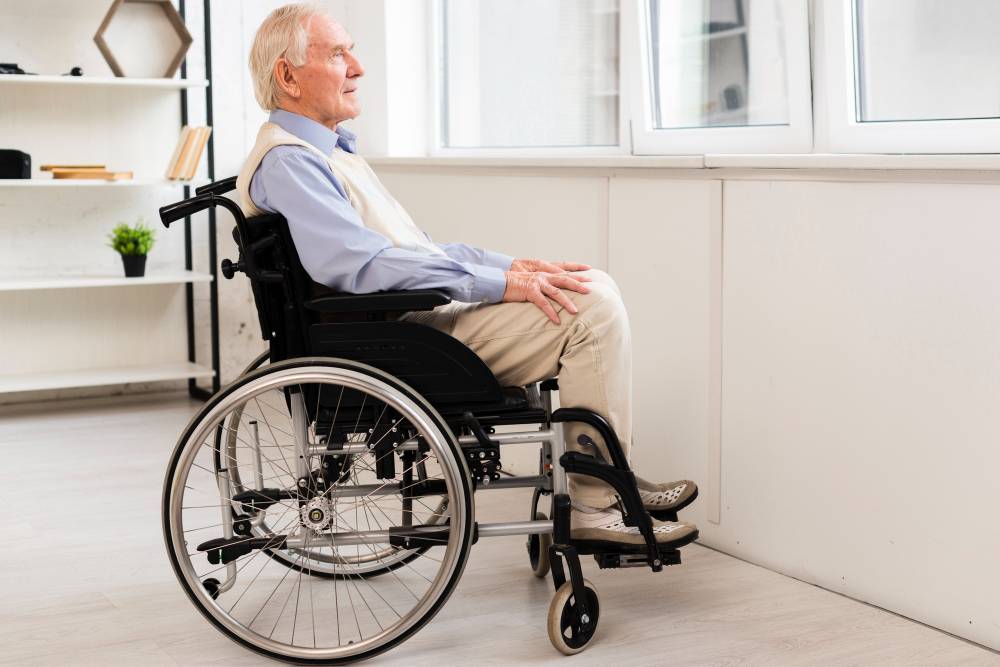India’s demographic landscape is undergoing a rapid transformation. The elderly population, defined as those aged 60 and above, is exploding. A report by Technical Group, India, reveals a staggering number: nearly 138 million elderly people in 2021, projected to reach a colossal 300 million by 2050. This shift presents both challenges and opportunities, with a critical aspect being the growing demand for caretaker services for elders.
Why Elders Need Professional Caretakers
Traditionally, India has relied on the informal caregiving network of families. However, several factors are making professional caretakers an increasingly crucial part of elder care:
Shifting Family Structures: The joint family system, once a cornerstone of elder care, is declining. A 2018 survey by the Lok Foundation found that only 19% of Indians now live in joint families. This shift, coupled with rising numbers of working couples, creates a time crunch for families to provide adequate care for elders.

Increased Life Expectancy:
Medical advancements have led to a rise in life expectancy in India. In 2020, the average life expectancy was 69.7 years, according to the World Bank. This means elders are more likely to experience age-related health issues that require specialized care.
Mental and Emotional Wellbeing: Social isolation and loneliness are significant concerns for elders. A 2017 study by HelpAge India found that 23% of elderly people in India reported feeling lonely “often” or “all the time.” Professional caregivers can provide companionship and emotional support, fostering a sense of well-being.
Chronic Health Conditions:
The prevalence of chronic health conditions among the elderly is a growing concern. A 2020 study published in the Lancet found that 27% of adults aged over 60 in India have diabetes. Managing these conditions often requires skilled medical care and assistance with daily activities.

Statistics Reflecting the Need
While data on the exact number of caretakers needed might be limited, several statistics paint a clear picture:
Limited In-Home Care: A 2019 study by the National Health Agency of India (NHA) revealed a concerning gap: only 5% of elderly people requiring long-term care received it in a formal setting. This indicates a massive need for professional caretakers to bridge this gap and provide in-home support.

Disability Among Elders:
According to the Census of India 2011, nearly 8% of the elderly population, translating to roughly 11 million people, suffer from some form of disability. These individuals require specialized care services for managing daily activities.
Demand for Skilled Care: A report by ASSOCHAM (Associated Chambers of Commerce and Industry of India) suggests a growing demand for skilled nursing care in India. The report estimates a requirement for 1.2 million skilled nurses by 2024, highlighting the need for trained professionals to manage complex medical situations.
Types of Caretaker Services Available
The landscape of caretaker services in India is evolving to cater to the diverse needs of the elderly population. Here’s an overview of some prominent service categories:
Basic Care Services: These services provide assistance with daily living activities (ADLs) such as bathing, dressing, grooming, toileting, and mobility. Caregivers may also help with meal preparation, light housekeeping, and medication reminders.
Companion Care: Companions offer companionship, conversation, and emotional support to combat loneliness and social isolation. They may engage elders in hobbies, social activities, or outings.
Skilled Nursing Care: Registered nurses or trained paramedics provide medical care such as administering medications, wound care, managing chronic conditions, and monitoring vital signs.
Dementia Care: Specialized caretakers trained to manage the specific needs of elders with dementia. This includes managing behavioral issues, providing memory support, and creating a safe and stimulating environment.
Post-Operative Care: Following surgery or hospitalization, elders may require temporary assistance with ADLs, medication management, and recovery. Caregivers can provide this support during the recuperation period.
Physiotherapy Care: Physiotherapists can help elders improve mobility, strength, and balance, reducing the risk of falls and promoting physical independence.
Benefits of Professional Caretakers
Employing professional caretakers offers numerous benefits for both elders and their families, backed by statistics:
Improved Quality of Care: Trained caretakers can provide skilled assistance with daily living activities, medication management, and medical monitoring. A 2021 study by the Journal of the American Geriatrics Society found that professional in-home care for elders with chronic conditions led to a 30% reduction in hospital readmission rates.
Reduced Burden on Families: Professional caretakers alleviate the burden on family members. A 2020 survey by Carer India, a caregiver support organization, found that 72% of family caregivers in India experience significant stress due to caregiving responsibilities.
Companionship and Emotional Support: Caretakers can provide companionship, conversation, and emotional support. A 2019 study published in the International Psychogeriatrics Journal found that social interaction provided by caregivers can reduce feelings of loneliness and depression in elders by 20%.
Personalized Care Plans: Caregivers can work with families and doctors to develop customized care plans. A 2018 study by Age International found that personalized care plans that consider individual needs and preferences of elders lead to higher satisfaction rates among both elders and their families.
Peace of Mind: Professional care services offer families peace of mind knowing their loved ones are safe, secure, and receiving the care they need.
The Road Ahead
The growing elderly population in India presents a compelling need for a robust network of professional caretakers. Increased awareness about the benefits of professional care services, coupled with initiatives to train and empower caregivers, will be crucial in bridging the existing gap. As India’s demographic landscape evolves, ensuring the well-being of our elders through high-quality care services becomes a collective responsibility.
Additional Considerations
- Technology and Caregiving: Technology is playing an increasingly important role in elder care. Telehealth services allow remote consultations with doctors, while wearable devices can monitor vital signs and health metrics. Caregiver service providers can integrate these advancements to enhance the quality and efficiency of care.
- Government Initiatives: The Indian government can play a vital role in supporting the caretaker service sector. Initiatives like skill development programs for caregivers, subsidies for care services, and promoting awareness about elder care options can significantly improve accessibility and affordability.
Standardization and Regulation: Establishing clear standards and regulations for the caretaker service sector will ensure quality care and protect the rights of both elders and caregivers
By addressing these considerations and fostering a supportive ecosystem for caretaker services, India can ensure its elderly population receives the care and dignity they deserve in their golden years.
Be First to Comment